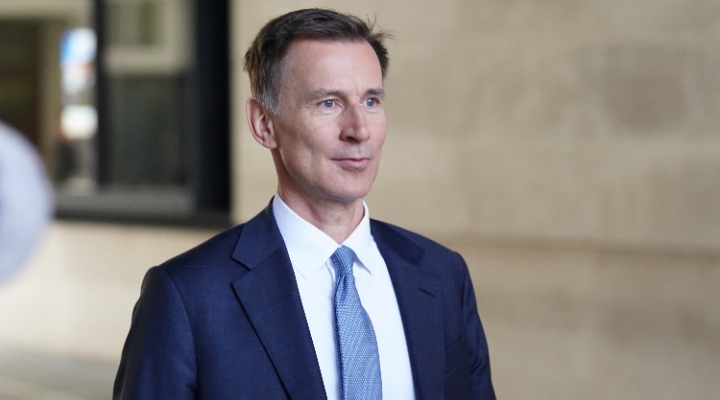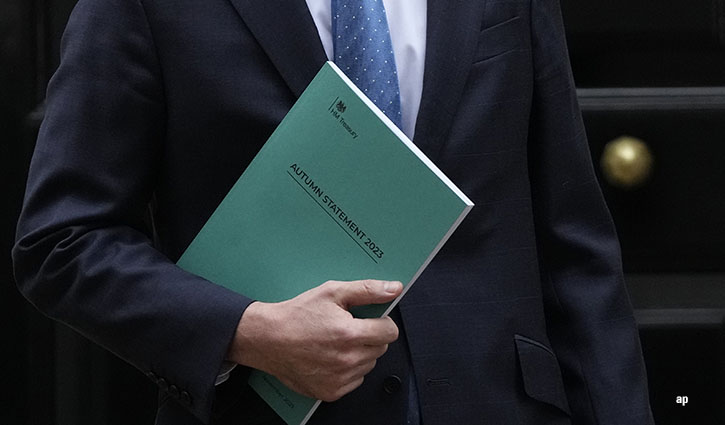
The Autumn Statement was a crucial opportunity for the chancellor to inject some much-needed optimism into politics ahead of a planned general election next year.
Oftentimes commentators are used to fiscal events that are either silent on pensions or very loud indeed, with little middle ground, but yesterday brought several notable changes that, while not earth-shattering, will be of interest to policy experts and retirees alike.
Our round-up is below in FAQ form.
What Will Happen to The State Pension?
After another period of to-ing and fro-ing over the state pension triple lock, the chancellor confirmed yesterday that the state pension will rise by 8.5% in April in line with wages, which have been increasing in the real economy.
Recipients of the New State Pension introduced in 2016 will now get a pension increase to £221.20 per from £203.85. Those who hit State Pension Age before April 6 2016 will get an increase to £169.50 from £156.20.
What Has Happened to Pensions and Inheritance Tax?
In the lead up the Autumn Statement last week there was plenty of heat and light over apparent plans to scrap inheritance tax (IHT), a change that would benefit a relatively small number of people during a cost of living crisis. Given the obvious political ramifications of tinkering in this way, no such policy emerged, leaving IHT untouched for another day.
Perhaps in parallel, the government also backed down on a proposal to tax inherited pensions when policy holders pass away before they turn 75. The current framework of taxing inherited pensions at the recipient’s marginal rate of income tax in the event members die over 75 remains too.
What Else *Wasn’t* in The Autumn Statement?
Inheritance tax changes weren’t the only thing absent yesterday.
It was barely a surprise that the private pensions allowances didn't feature in the speech itself. After all, the government scrapped the Lifetime Allowance on pensions contributions at the Budget earlier this year, removing the ceiling at which savers can contribute to pensions without paying an additional charge. However, savers will note from the documents published alongside the Autumn Statement speech yesterday that the government has now confirmed the charge will be scrapped from April 2024.
What is Pot For Life?
Far from a surprise jaunt down the avenue of long-term pharmaceutical exploration, Pot For Life is actually about pensions – and specifically auto-enrolment, which automatically puts eligible new workers into a default pension arrangement when they start a new job.
Under previous rules, the onus fell on employers to sign workers up to a pension plan when they arrived at businesses. But there were concerns the fluid nature of the British workforce would potentially land employees with dozens of different pots (and investment strategies) throughout their working lives.
Under fresh proposals, individuals will now have more of a say. The pensions industry will no doubt consult at length about it, but in theory new entrants to the workforce will get power over which pot they choose to start saving in – and the simplicity of that being their main workplace pot in perpetuity.
Was There Anything Else Important?
It was hardly the rabbit-out-of-the-hat policy glamour you might have expected of a chancellor keen to impress, but there were other crucial changes to the way the UK invests via pensions and ISAs. Our separate explainer on ISA changes can here found here and the main tax changes are summarised here.
Jeremy Hunt’s Mansion House pension reforms have already been the subject of much debate, as the decision to encourage pension schemes to invest in more UK growth companies is just a little bit controversial. But yesterday the chancellor provided more detail, starting with the defined contribution (DC) pensions industry.
In a consolidating move that seems to mirror many of the mergers and acquisitions that have already begun to define the wider asset and wealth management world, Hunt told MPs that, by 2030, the majority of workplace DC savers will have their pots managed in schemes of over £30 billion. In addition, all local government pension funds will be invested in pools of £200 billion or more by 2040.
Finally, the Pension Protection Fund – a lifeboat that steps in when pension schemes go bust – will take on an additional role as a consolidator of smaller defined benefit pension schemes that may be unattractive to larger schemes.










.jpg)

















